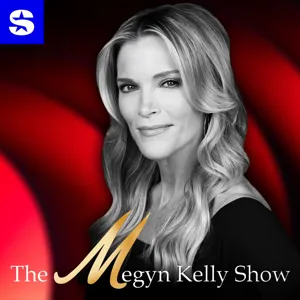Podcast Summary
Supreme Court Rules Against Use of Race in College Admissions: The Supreme Court has banned the use of race as a factor in college admissions, potentially impacting affirmative action policies in various sectors and sparking a significant cultural debate
The Supreme Court has ruled against the use of race as a factor in college admissions, marking a significant shift in higher education policies that have been in place for the past 45 years. This decision, which could have implications for corporate America, comes after two cases, one involving Harvard University and the other, the University of North Carolina, were challenged by an organization called Students For Fair Admissions. The organization, led by Edward Blum, argued that the use of race in the admissions process is unconstitutional and should be race-blind. The ruling could potentially impact affirmative action policies in other areas, such as political gerrymandering. College presidents and admissions directors are now scrambling to understand the implications of this decision, as race has played a huge role in the admissions process in the past. The country's increasing polarization has made this issue one of the most significant cultural debates in the country.
Supreme Court Bans Use of Race in College Admissions: The Supreme Court has ruled that colleges and universities cannot consider race in their admissions process, overturning the use of affirmative action in higher education. This decision primarily impacts around 100 selective universities and the debate around affirmative action's role in promoting diversity continues.
The Supreme Court has ruled that colleges and universities cannot consider race as a factor in their admissions process. This decision, which was a 6-3 vote, overturns the long-standing use of affirmative action in higher education. The court's conservative justices argued that this practice violates the Constitution, while the liberal justices dissented, emphasizing the importance of diversity and representation. This decision is expected to primarily impact around 100 selective universities, as most institutions do not use race as a factor in admissions. However, these universities, which are often seen as the "sorting hats" for American culture and society, have a significant influence, with many prominent figures having attended them. The debate around affirmative action and its role in addressing historical disparities and promoting diversity will continue.
Supreme Court Decision on Race-Conscious Admissions: The Supreme Court's decision to potentially eliminate race-conscious admissions in college applications could decrease diversity, limit opportunities for underrepresented groups, and perpetuate power imbalances.
The Supreme Court's decision to potentially eliminate race-conscious admissions in college applications could lead to a decrease in diversity at elite universities. These institutions serve as gatekeepers to the American power structure, and their admissions processes have been a source of intense focus. The removal of race-identifying boxes on applications may result in increased dishonesty or a disappearance of the box altogether. Schools in states that have already banned affirmative action have responded by recruiting from majority minority schools, but these efforts can be expensive and may not attract the same socioeconomic diversity as affirmative action policies. The potential consequences of this decision are significant, as it could limit opportunities for underrepresented groups and perpetuate existing power imbalances.
Supreme Court Decision on Race in College Admissions: Potential Financial Implications: The Supreme Court's decision to end the use of race in college admissions could result in increased financial aid for economically disadvantaged students to maintain campus diversity, sparking disagreement and concerns over potential impact on workforce diversity and affirmative action policies.
The Supreme Court's decision to end the use of race as a factor in college admissions could result in significant financial implications for schools aiming to maintain a diverse campus. This is because schools may need to provide more financial aid to economically disadvantaged students to ensure diversity. The decision has sparked disagreement from President Biden and concerns from the corporate sector, as they fear the impact on workforce diversity and potential challenges to their affirmative action policies. While the decision doesn't directly affect corporate practices yet, it could potentially limit the number of minorities entering colleges and universities, which could have long-term consequences for diversity in the workforce.
Supreme Court ruling on affirmative action could impact DEI initiatives: The Supreme Court ruling may lead to legal challenges against DEI programs, disrupting the pipeline of diverse candidates and hindering efforts to create a more inclusive and equitable workplace.
A Supreme Court ruling on affirmative action could significantly impact diversity, equity, and inclusion (DEI) initiatives in the workforce. Large companies and employer associations have argued for race-conscious admissions to ensure a qualified and diverse future workforce, as research shows that diverse organizations perform better financially and are more innovative. However, the ruling may lead to legal challenges against companies' DEI programs, including hiring goals and policies. These challenges could disrupt the pipeline of diverse candidates for leadership positions, potentially limiting mobility for employees of color. Companies are concerned about the potential impact on their diversity efforts and the potential legal costs and distractions. Ultimately, the ruling could hinder efforts to create a more inclusive and equitable workplace.
Impact of Supreme Court ruling on diversity in workplaces: The Supreme Court ruling limiting race use in college admissions could hinder diversity initiatives in workplaces, making it harder for underrepresented groups to progress in their careers.
The recent Supreme Court ruling limiting the use of race in college admissions could have a chilling effect on diversity initiatives in the workplace. For individuals from less privileged backgrounds, lacking educational pedigree or professional networks, this could make it harder to secure that first job opportunity and progress in their careers. Affirmative action has historically played a crucial role in creating mobility for underrepresented groups. However, the ruling comes at a time when there's a broader backlash against diversity, equity, and inclusion efforts. Companies might become more cautious about implementing diversity programs, potentially hindering opportunities for people of color and other marginalized groups.






